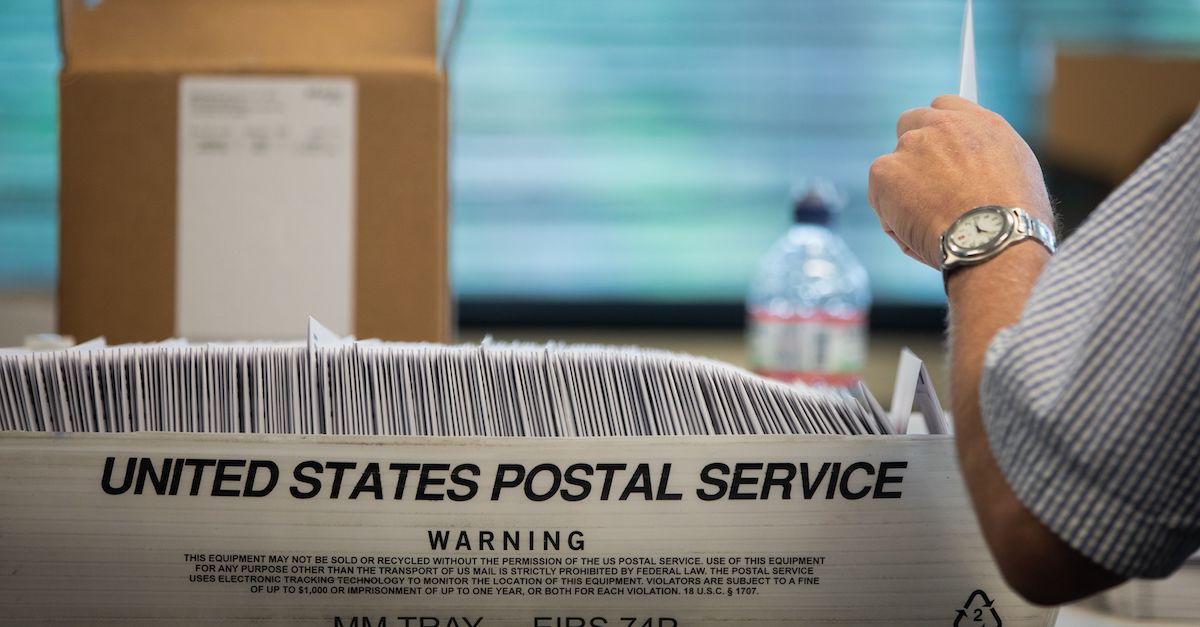
The Commonwealth of Pennsylvania is currently undergoing an administrative nightmare as hundreds of thousands of mail-in ballot requests have been rejected so far. Concomitant voter confusion has added to the turmoil in one of the most pivotal and closely-watched swing states as the general election looms just over two weeks away.
According to the Philadeplphia Inquirer, some 372,000 ballot requests have been denied since mail-in ballot applications were made available to voters this summer for the fall election.
Election officials in the Keystone State say that most of the denials are due to duplicate requests made by voters who recently requested a mail-in ballot but were unaware that they had already made such a request during the June primary election.
Tens of thousands of other rejections have occurred for various other reasons, according to election officials.
Regardless of why those requests have been denied, the resulting swarm of rejection notices have created a perfectly vicious cycle of bureaucratic chaos that has plunged voters into panic mode–prompting many to continuously re-file for mail-in ballots and be repeatedly rejected–and overwhelmed local election offices as disgruntled voters call to inquire and complain about their rejected applications.
Adding to the confusion is the fact that Pennsylvania’s online system doesn’t specify why a voter’s ballot is rejected as a duplicate–leaving citizens with seemingly little recourse but to file again.
The ballot rejection avalanche has forced election authorities to hire outside help and keep seven-day workweeks in order to deal with the spiraling and self-perpetuating fallout.
“The volume of calls we have been getting has been overwhelming,” Armstrong County Elections Director Marybeth Kuznik told the outlet. “It has been almost like a denial of service attack at times because it seemed that sometimes all I could get done was answer the phone!”
Partisan and purportedly non-partisan nonprofit groups have also ramped up campaigns to secure mail-in ballots for voters. Election officials say these efforts have contributed to the deluge of duplicate applications because of the ease associated with the outside ballot request schemes.
The Pennsylvania Department of State recently upbraided outside groups—blaming them for causing “confusion for voters” and increasing “the likelihood that voters will not realize their application has been processed and [that] they don’t need to submit another one.”
Tulane University Law Professor and election law expert Ross Garber explained the ballot rejection fiasco in the context of a state attempting to essentially conduct an all-mail election on the fly and from scratch.
“Our country has never before attempted an election with so many mail-in ballots,” he told Law&Crime in an email. “There are already many lawsuits about how these ballots are to be processed and counted. And we should expect significant logistical issues, some of which we are already seeing, including in Pennsylvania. Putting aside widespread fraud, it is these issues that could have enormous consequences.”
Garber went on to provide a bird’s-eye-view of how the ballot issues could impact the election as crucial days go by in the very near future:
Disputes about ballots could take an incredibly long time to resolve. It is entirely possible, even likely, they wouldn’t be resolved before the December 8 “Safe Harbor“ deadline, after which Congress need not presume a state’s certified election results are valid. Only a week later is when members of the Electoral College vote. Pending disputes could result in competing slates of electors, which happened in several states in 1876, throwing the presidential race to Congress to sort out.
Garber concluded by saying, “In a close election, issues with mail-in ballots could be consequential, or even determinative.”
[image via LOGAN CYRUS/AFP/Getty Images]